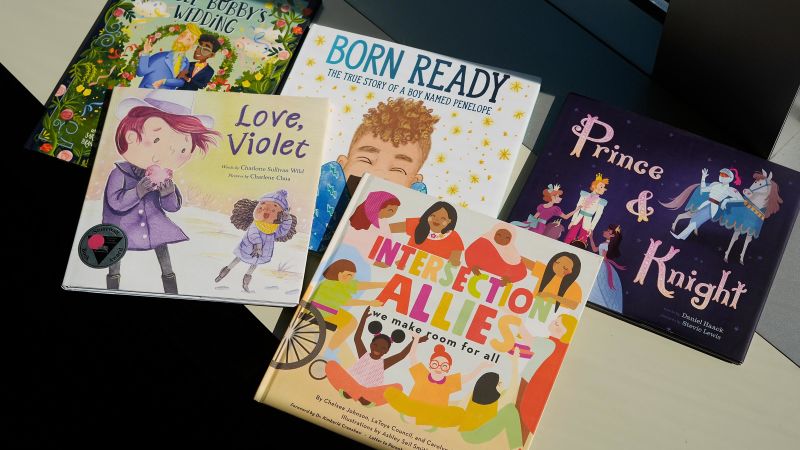The Supreme Court on Friday backed a group of religious parents who want to opt their elementary school children out of engaging with LGBTQ books in the classroom, another major legal win for religious interests at the conservative high court.
In the latest decision blurring the line that once clearly separated secular education from religious belief, the court said that a suburban school district near Washington, DC, burdened parents’ First Amendment rights by refusing to allow them to pull their children from the classroom when the books are used.
Justice Samuel Alito wrote the decision for an ideologically divided court. The court’s three liberals dissented.
“The board’s introduction of the ‘LGBTQ+-inclusive’ storybooks, along with its decision to withhold opt outs, places an unconstitutional burden on the parents’ rights to the free exercise of their religion,” Alito wrote for the majority. “The parents have therefore shown that they are likely to succeed in their free exercise claims.”
Alito left to a lower court to weigh whether the policy will survive in the long term but made clear it likely will not.
The appeal arrived at the Supreme Court at a moment when conservatives, including President Donald Trump, have sought to roll back political and cultural gains made by LGBTQ Americans. Parents and schools, meanwhile, have been engaged in a tense struggle since the Covid-19 pandemic over how much sway families should have over public-school instruction.
And the high court’s conservative justices just last weekupheld Tennessee’s ban on gender-affirming carefor trans minors in a significant legal loss that community.
But the appeal didn’t deal directly with any of those crosscurrents. Instead, it was swept up by a different movement: A push by the Supreme Court’s conservative majority to rebalance the tension between the freedom of religious exercise and the First Amendment’s admonishment against government “establishment of religion.” Several of the justices have made clear in public statements and in opinions that they feel the government has gone so far in attempting to honor the principle of separating church and state that they have effectively wound up discriminating against religion.
As part of its English curriculum, Montgomery County Public Schools in Maryland approved a handful of books in 2022 at issue in the case. One, “Prince & Knight,” tells the story of a prince who does not want to marry any of the princesses in his realm. After teaming up with a knight to slay a dragon, the two fall in love, “filling the king and queen with joy,” according to the school’s summary.
Another book, “Born Ready,” tells the story of Penelope, a character who likes skateboarding and wearing baggy jeans. When Penelope tells his mother that he is a boy, he is accepted. When Penelope’s brother questions his gender identity, their mother hugs both children and whispers, “Not everything needsto make sense. This is about love.”
There was considerable disagreement about how the books were actually being used in the classroom. The school district told the justices that the books are used like any other in the curriculum: Placed on shelves for students to find and available for teachers to incorporate into reading groups or read-alouds at their discretion. But the parents who object to the books said they are in active use, and they zeroed in on “discussion guides” that were provided to teachers.
That guidance, the parents stressed, encouraged teachers to emphasize that “not everyone is a boy or girl” and that students should ask about their peers’ pronouns. The guidance suggested that if a student described a peer as “weird,” the teacher should respond that the comment is “hurtful” and that students “shouldn’t use negative words” to describe others.
The Richmond-based 4th US Circuit Court of Appeals cited the lack of clarity insiding with the schools 2-1last year. But during the Supreme Court’s arguments in April, most of the conservative justices focused instead on the idea that parents are permitted to pull students out of all sorts of other discussions, like sex education.
The school district argued that an earlier effort to allow opt-outs when the books were in use was disruptive. School officials also argued that a win for the parents would create a slippery slope, allowing families that object to any number of classroom discussions to opt out of a wide range of curriculum they find offensive.
The 6-3 conservative Supreme Court has sided with religious interests in every case it has considered in recent years – allowing a high school football coach to pray on the 50-yard line, permitting taxpayer money to be spent on religious schools and backing a Catholic foster care agency that refused to work withsame-sex couples as potential parents. Many of those cases have involved public schools.
